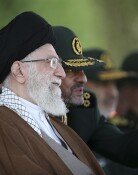Chilling Financial Market Dive
Chilling Financial Market Dive
Posted August. 17, 2007 03:02,
When countries began to feel the shock of the global financial market downturn triggered by a crisis in the U.S. subprime mortgage crisis, stock markets around the world took a tumble. The Seoul KOSPI was one of the worst-affected markets, recording its biggest daily loss in its history on Thursday.
With concerns over an international credit crunch and fears of a yen carry-trade snap, foreign investors in Korea are hastening to retrieve their assets, resulting in a weakening won as opposed to the U.S. dollar and Japanese yen. While fear runs high in the financial market, international oil prices have surged, further threatening the Korean economy in the second half of this year.
As foreign and individual investors scurried to sell their shares on Thursday, the KOSPI index closed at 1,691.98 on the day, falling by 6.93 percent (125.91 points) since Tuesday, its previous trading day. The KOSDAQ index did no better, dropping by 10.15 percent (77.85 points) and closing at 689.07. Thursdays KOSPI index drop was well above its largest loss of 93.17 points recorded in April 2000.
The combined market capitalization of the KOSPI and KOSDAQ fell by 72 trillion won for the day, adding up to a 170 trillion won loss for August so far.
In response to large sell-offs, the KOSDAQ market imposed circuit-breaking trading halts and sidecar measures. A sidecar was also activated in the KOSPI market.
Meanwhile, stock markets in other parts of Asia also headed downhill. Japans Nikkei 225 index lost 327.12 yen (1.99%) from the previous trading day, closing at 16,148.49 yen, the lowest since last November. Taiwans TSEC index also dwindled to 8201.37 points, recording a hefty 391.67 percentage point (4.56%) decline.
The Korean won closed at 946.3 won to the U.S. dollar on Thursday, the lowest in five months, slashing 13.8 won from the previous trading day. With the possibility of yen-carry trade speculators bailing out growing higher, the won closed at 814.44 won to 100 Japanese yen, dropping by 23.31 won.
The price of Dubai oil, which accounts for 80 percent of Koreas crude oil imports, rose by a whopping 0.55 dollars compared to the day before to close at 66.91 dollars on Wednesday, falling only a little short of the 70-dollar mark.
Although the government raised its forecasts for this years economic growth from the previous 4.5 percent to 4.6 percent last month, the prospects have become bleak due to widespread instability in the financial market and rising oil prices. The financial authorities have set up a task-force team with members from the Finance and Economy Ministry, Financial Supervisory Commission and the Bank of Korea to conduct daily check-ups on the financial markets.







